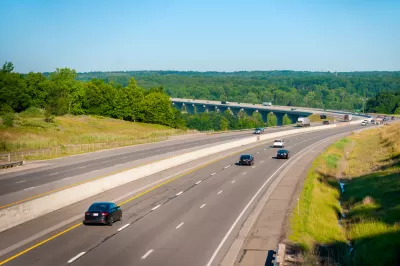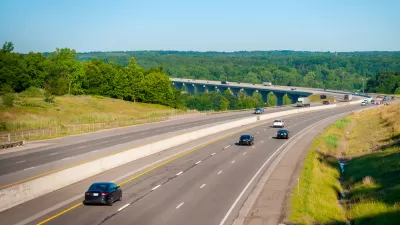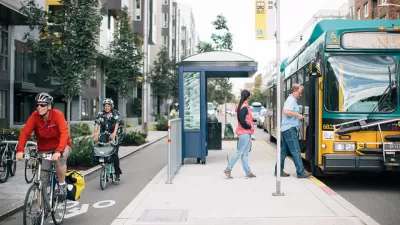The Northeast Ohio Areawide Coordinating Agency (NOACA) is considering a new policy that will add considerations about regional economic inequities when evaluating potential highway projects.

"Recognizing that highways reward some areas and penalize others, [Northeast Ohio’s] top transportation planning agency is drafting a policy to quantify whether adding new interchanges to the system would exacerbate historical patterns of inequity," reports Steven Litt.
The Northeast Ohio Areawide Coordinating Agency (NOACA) is federally mandated to oversee transportation planning for the region that includes Cuyahoga, Lake, Geauga, Lorain and Medina counties.
"By developing the new policy, NOACA aims to look beyond a traditionally narrow focus on safety and mitigation of traffic congestion to consider broader impacts on regional economic development patterns, transit, and environmental sustainability," according to Litt.
"Criteria under consideration, and reviewed in the most recent meeting of NOACA’s policy committee on July 10, include whether a new interchange would facilitate redevelopment of 'declining and abandoned areas,‘' or encourage transit-oriented development in areas with higher densities of population." NOACA is expected to make a decision about the new policy by December. If approved, the new policy would immediately apply to eight projects in the planning pipeline.
An earlier article by Litt details NOACA's work on eNEO2050, a 20-year vision for the region that promised to focus on social equity, particularly for households without cars. That plan is expected for completion in 2021.

Study: Maui’s Plan to Convert Vacation Rentals to Long-Term Housing Could Cause Nearly $1 Billion Economic Loss
The plan would reduce visitor accommodation by 25,% resulting in 1,900 jobs lost.

North Texas Transit Leaders Tout Benefits of TOD for Growing Region
At a summit focused on transit-oriented development, policymakers discussed how North Texas’ expanded light rail system can serve as a tool for economic growth.

Using Old Oil and Gas Wells for Green Energy Storage
Penn State researchers have found that repurposing abandoned oil and gas wells for geothermal-assisted compressed-air energy storage can boost efficiency, reduce environmental risks, and support clean energy and job transitions.

How Madison’s Tree Planting Efforts Are Growing a Healthier Community
Madison’s annual tree planting initiative is enhancing environmental resilience, public health, and community livability by adding 1,400 carefully selected trees citywide, with strong community and institutional support for urban forestry.

Texas State Bills Could Kill Transit Funding in Dallas, Austin
State lawmakers could pull funding from the state’s largest transit agency and the ambitious Project Connect, a voter-approved transit project in Austin.

Opinion: DC Encampment Sweeps Hide, but Don’t Solve, Homelessness
President Trump recently ordered the clearing of encampments built by unhoused people on federal land in Washington, D.C.
Urban Design for Planners 1: Software Tools
This six-course series explores essential urban design concepts using open source software and equips planners with the tools they need to participate fully in the urban design process.
Planning for Universal Design
Learn the tools for implementing Universal Design in planning regulations.
Ascent Environmental
Borough of Carlisle
Institute for Housing and Urban Development Studies (IHS)
City of Grandview
Harvard GSD Executive Education
Toledo-Lucas County Plan Commissions
Salt Lake City
NYU Wagner Graduate School of Public Service





























